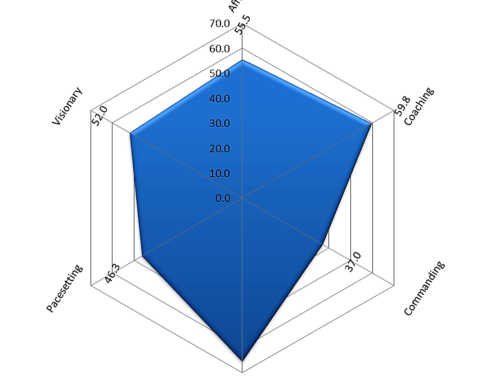Are you a Leader or a Manager?
If you are in-charge of a team of people, then should you function as a Leader or a Manager?
The differentiation between Leadership and Management was started by Professor John P. Kotter some years ago. According to Professor Kotter, the difference between Leadership and Management are obvious and should be differentiated.
But the question is: Does it help for us to differentiate between a Leader and a Manager?
For instance, if you are in-charge of a team of people, then do you function as a Leader or do you function as a Manager?
Well, in most cases, you do not need to differentiate between a Leader and a Manager.
You only need to be clear on the differences and the roles and responsibilities if the position is a very senior position. For instance, CEO, CFO, CIO, CTO or similar senior positions in an organisation.
If you are a C-level executive or if you are in a very senior position, then it is vital that you know the difference between being a Leader and being a Manager, because your main responsibility is to lead the organisation.
You will have no time to manage your team on a day-to-day basis. As a senior person, you should be the one to articulate the vision and mission for your people. You do not want to be seen as a micro-manager, sticking your hands into the nitty-gritty stuff of everyday operations.
When Jack Welch was CEO of General Electric, he was widely known as a Leader – not a Manager. What Welch did was to articulate the Vision and Mission of the company. His strategies, plans and directions for the entire organisation was clear and everybody understood what they were supposed to achieve.
Martin Luther King is also widely acknowledged as a great Leader. He articulated this vision and mission very clearly with his now-famous “I had a Dream” speech – that’s Vision. As Simon Sinek said in his now-famous TED speech, Martin Luther King did not do a “I have a plan” speech.
Leaders set directions, articulate their vision and mission, and motivate and inspire people to achieve those visions.
On the other hand, as we move down the organisational hierarchy, it becomes meaningless to differentiate between a Leader and a Manager. For instance, if you are a manager of a small team of 10 people, then it would be wise for you to be seen as BOTH a Leader and a Manager. You will have to spend time managing your team members and you need to be able to articulate and set goals and objectives for each of your team members and your team as a whole. You will need to lead and manage them all at the same time.
It will be a blatant waste of time to differentiate between a leader and a manager if the position is not senior enough on the organisational hierarchy.
A good rule-of-thumb is the size of your team. If your team has 10 people, you can be both a leader and a manager. However if your team has more than 20 people, then it becomes very inefficient and ineffective for you to be managing each member on your 20-member strong team.
You will be stretched too thin, and you will almost certainly lose track of what each member is supposed to do on a day-to-day basis. And if you get your hands dirty in such situations, you will almost certainly be seen as a micro-manager.
So yes, it helps to differentiate between what a Leader should do and what a Manager should do. But this makes sense and is helpful only if the position you are talking about is a senior position or the team has too many members. Middle management positions or Line Managers, as some organisations call them, usually have a delicate role to play to balance their role as both leaders and managers. They need to be able to articulate their team goals and objectives clearly, and at the same time they need to be able to manage the team’s day-to-day operations.
So the bottom-line is this: Most of us will have to be both a Leader and a Manager, because you will need to lead you team and at the same time manage your day-to-day operations. So if you are a Line Manager, or a Team Manager, then you should be functioning as both a Leader and a Manager.
Do you agree?







Leave A Comment